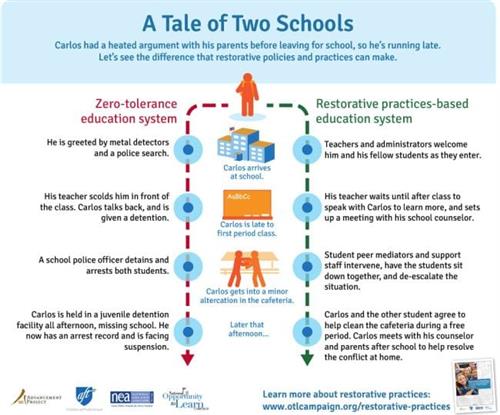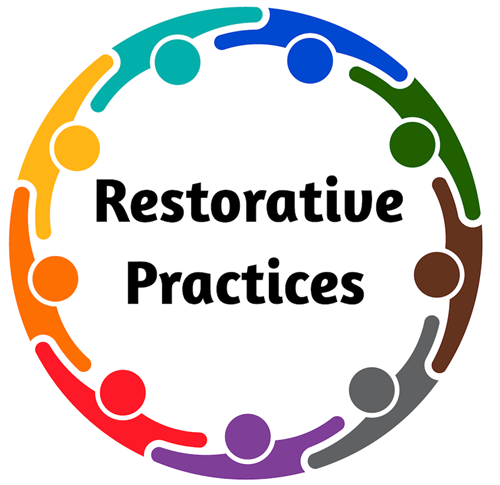- Lowell Public Schools
- Social Emotional Learning (SEL)
- SEL Curriculum K-12
- Restorative Practice
Mental Health & SEL
Page Navigation
- Welcome
- Parent & Community Webinars
- Parent Education Materials
- Mental Health Support: Self-Referral Resources for Families & Students
- Community Partnerships
- Mental Health & Community Resources
- Bullying Prevention
- Vaping/Nicotine Prevention
- Social Emotional Learning (SEL)
- Staff & Teacher Wellbeing Ideas
- LPS Staff SEL Offerings/Trainings
- MTSS (Multi-Tiered Systems of Support)
- Growth MindSet
-
All humans are hardwired to connect. Just as we need food, shelter, and clothing, human beings also need strong and meaningful relationships to thrive.
Restorative practices is a field within the social sciences that studies how to strengthen relationships between individuals as well as social connections within communities.
Though newer to the social sciences, restorative practices have deep roots within Indigenous communities throughout the world.
Restorative practices are based on five principles, or "R's": Relationship, Respect, Responsibility, Repair, and Reintegration.
Restorative practices can help people:-Improve their social and emotional skills
-Develop conflict-resolution and problem-solving skills
-Strengthen their sense of connection with others
-Repair harm in a restorative way instead of using punishment
-

It is optimal to integrate restorative approaches into the daily practices of organizations serving youth to establish a positive climate and build social and emotional skills before introducing restorative justice into situations of conflict and harm.


